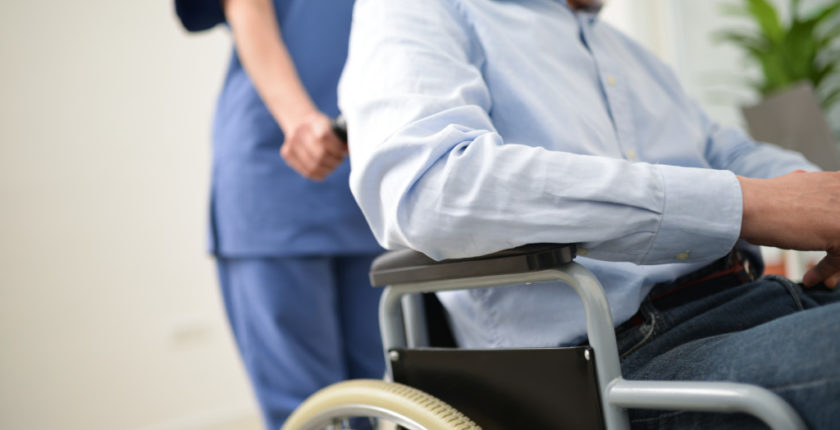Elderly people requiring round the clock care set to double
[ad_1]
A new report has revealed that the number of adults aged 85 and above needing round the clock care will almost double over the next 20 years.
The report by experts at Newcastle University, which has been published in The Lancet, forecasts that the number of 85s and over requiring round the clock care will grow to 446,000 by 2035 with the number of 65s requiring constant care rising by a third to over 1m.
Professor Carol Jagger, who led the study, said: “The challenge is considerable. Older spouse carers are increasingly likely to be living with disabilities themselves, resulting in mutual care relationships that are not yet well recognised by existing care policy and practices.

Advertisement
“On top of that, extending the retirement age of the UK population is likely to further reduce the informal and unpaid carer pool, who have traditionally provided for older family members.
“These constraints will exacerbate pressures on already stretched social care budgets.”
The number of people aged over 65 is forecast to rise by just under 50% from 9.7m in 2015 to 14.5m.
The life expectancy of men aged 65 is expected to rise by 3.5 years to 22.2 years, and the average number of years spent independent is expected to increase by 4.2 years (from 11.1 years to 15.2), whilst time spent living with substantial care needs is likely to decline.
In contrast, for women average life expectancy at 65 will increase by 3 years (from 21.1 to 24.1). Over this time, the average number of years of independence is expected to rise by less than a year (from 10.7 years to 11.6).
Women will spend almost half of their remaining life with low dependency needs, such as help with activities like washing and shopping, alongside a small increase in years requiring intensive 24-hour care, the report found.
Professor Jagger said: “Over the next 20 years, although young-old cohorts are more likely to enter old age independent, the proportion of adults with multi-morbidities is projected to rise with each successive cohort, and this will result in a greater likelihood of higher dependency with further ageing.
“However, trends for men and women are likely to be very different, with women experiencing more low level dependency than men, highlighting the importance of focusing on disabling long-term conditions, such as arthritis that are more common in women than men.”
The research found that older people with substantial care needs are likely to change markedly. For example, whilst numbers of these with dementia alone will fall by around a third by 2035, numbers with dementia and two or more other conditions will more than double.
Nadra Ahmed OBE Executive Chairman of National Care Association said the report highlighted the “stark reality” of the challenges faced by the increase in demand for social care.
She added: “The findings make uncomfortable reading as it brings into sharp focus the role of informal carers created through a deliberate policy of keeping people at home regardless of the complexity of their assessed care needs.
“It is crucial that we address this issue now to create sustainable solutions rather than the ‘make do and mend’ mentality adopted by successive governments at both local and national levels. If we fail to do so, we will be letting down a generation who have already paid into the system! “
[ad_2]
Source link

